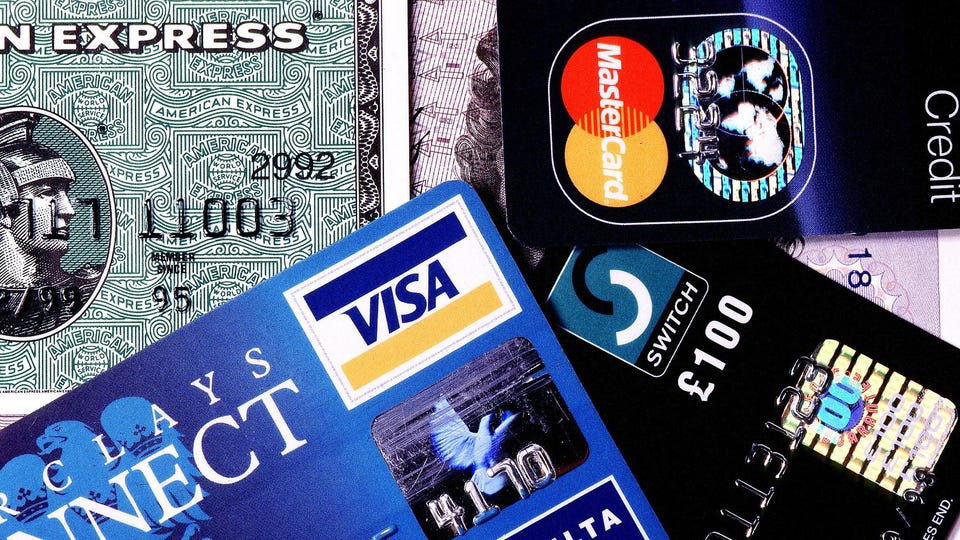Policy A Durbin Amendment For Credit Cards Will Reduce Their Ubiquity And Do Nothing To Reduce Inflation Ike Brannon Contributor Opinions expressed by Forbes Contributors are their own. Ike Brannon is a senior fellow at the Jack Kemp Foundation New! Follow this author to improve your content experience. Got it! Aug 3, 2022, 11:30am EDT | Share to Facebook Share to Twitter Share to Linkedin One of the ways that the Biden Administration and the Democratic Congress has tried to deflect the opprobrium for the inflation spike of the last year or so has been to blame the middlemen—those entities that facilitate transactions between buyers and sellers—for contributing to high prices without providing anything of value for what it receives.
In the last few months it has investigated the prescription drug market , online platforms operated by big tech companies, oil and gas producers , and food delivery apps , to name but a few. Last week Senator Durbin signaled he is considering adding only Mastercard and Visa to this list by introducing legislation that would mandate that credit cards be enabled with at least two unaffiliated networks, which would require the replacement of every credit card currently in circulation with a new, more expensive card for consumers. The legislation mirrors the so-called Durbin Amendment to the 2010 Dodd-Frank Act, which imposed a similar requirement on debit card transactions.
However, blaming the credit cards for high prices is little more than an exercise in political distraction: New routing mandates will not do a thing to help small merchants and would likely reduce the ability of poorer Americans to obtain credit cards altogether. Credit card fees range from about 1 to 3. 5 percent , and have been slowly decreasing in the last few years: the largest retailers are able to leverage their market power and negotiate lower rates.
Major retailers welcome this legislation since it stands to save them money. For instance, Amazon had about $340 billion in sales last year; given that about two-thirds of all online sales are conducted via credit cards , that would mean it sold roughly $225 billion that way. Even assuming a low rate of 1% for acceptance costs would mean that Amazon paid $2.
2 billion in fees. Cutting these fees in half via regulatory fiat would net Amazon at least $1 billion in extra revenue. MORE FOR YOU Biden’s Proposed IRS Bank Account Snooping Authority Runs Into State Resistance 2021 Diversity Green Card Lottery Winners To Be Shut Out Because Of Visa Deadline The Swamp Grew – Even Under President Donald Trump Smaller firms that have little or no market power will probably not see any reduction in fees from this.
Consumers stand to lose from this. Some of those interchange fees are used to pay the administrative costs of operating the card programs and extending credit to consumers and small businesses, but much of that money also gets returned to consumers via their credit cards rewards program—60 percent is the industry average. The most generous programs return as much as four percent of all spending back to the consumer as frequent flier miles, hotel points, or cash back, and for certain industries or merchants it can go even higher.
Consumers have come to like their rewards cards, and for good reason: in 2020 rewards equaled roughly $60 billion —no mere chump change. Airlines and hotels especially like the program, which helps them build customer loyalty and boost sales. A routing mandate would function like a cap on credit card fees because the second network would drive down costs for large merchants, and it would almost certainly spell an end to co-brand rewards cards provided by Mastercard and Visa; since Discover, American Express, and other networks would be exempt from these regulations they would presumably move to jump into this void.
A bank or merchant would have little incentive to enter into a co-brand agreement with a regulated Mastercard or Visa when they could pursue an unregulated agreement with Amex or Discover and return more to the customer. However, there’s no reason to think that consumers will end up better off from this cap: A study I did with my former colleague Chris Richardson published earlier this year found that consumers stand to lose about $17 billion from interchange regulation—about one third of what they receive in credit card rewards. We found little evidence that this loss would be made up through lower prices for consumers.
The regulation would also lead credit card issuers to raise the income and credit score threshold for people to obtain a credit card. Consumers who are at greater risk of defaulting on their payments may no longer be cost—effective customers for banks and credit unions. Financial economists believe that the original Durbin Amendment led to the demise of free checking and debit rewards programs, which may increase the number of households without access to credit cards.
There are currently no debit rewards co-brands from Mastercard and Visa. The idea that the credit card industry is a static oligopoly in dire need of more regulation is completely mistaken. These days consumers have more ways to pay for transactions than ever before and new market entrants and technologies—most notably blockchain and Buy Now Pay Later providers—have the potential to completely disrupt the market.
Hamstringing the two biggest and most efficient issuers would do little to reduce consumer costs while making it more difficult for low-income households to obtain credit. Follow me on Twitter or LinkedIn . Ike Brannon Editorial Standards Print Reprints & Permissions.
From: forbes
URL: https://www.forbes.com/sites/ikebrannon/2022/08/03/a-durbin-amendment-for-credit-cards-will-reduced-their-ubiquity-and-do-nothing-to-reduce-inflation/
